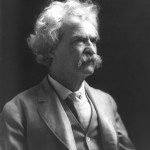Alice is a far different proposition from Prince of Persia. For one thing, it's visually stunning, doesn't make your eyes roll, doesn't bury you in screaming sand, and features Johnny Depp in a wonderful turn as the Mad Hatter.
It tells a story that tries to masquerade as a feminist coming-of-age story. As Alice discovers her destiny in Wonderland (called "Underland" in the movie), so she discovers her destiny in the real world. Alice, the modern woman of 1870, opts for career over marriage.
On the surface, that seems good, but it's hard to say if it is all that "feminist" in the sense of showing that women are fully capable of determining their own destinies. This poor Alice, in the hands of Disney and Burton, doesn't really make a choice between career and marriage as much as she makes a choice between two men -- her would-be suitor and her deceased father. Is this a fully liberated Alice? That's a point to be debated. I think it could form the basis for wonderful conversations with our daughters about the pitfalls and potentials of women's independence, and serve as a starting point for an exploration of what being "liberated," fully or partially, could really mean.
The real problem with Alice is different, and much more serious. It is likely to create problems for boys and girls alike. The problem is that when Alice chooses to become a career woman, she chooses to follow her father's dream of oceanic trade between England and China.
And anyone who knows history will know the cruel and inhuman effects of British trade in China in the 19th century. You'll know that this makes Alice a bad guy. Even if she doesn't personally engage in the trade in opium and slave labor, she certainly sails comfortably on trade routes protected by the English Navy, the ocean enforcers of the British drug cartels, and she certainly profits from trade conditions imposed by the British by force, and severely skewed to the benefit of the British traders.
It's an appalling ending. It stops short of telling our children just what happened next, when that information is crucial to international relations in a world in which China is a dominant power. The Chinese know their history, and know how they suffered at the hands of European and American imperialism. Shouldn't our children know it too?
Is Disney bad for your child's health? There's no simple answer to that. But what is bad for our children -- and for parents as well -- is cultural and historical illiteracy. We have got to learn how to read Donald Duck.





